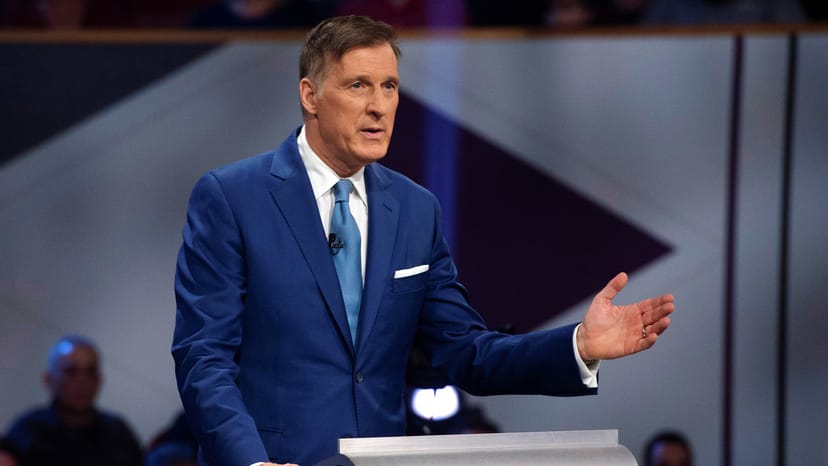The People’s Party of Canada Can’t Participate In Debates: Why Canada’s Debate Commission Is Playing a Dangerous Game

They didn’t have to agree with Maxime Bernier. They didn’t have to like the Greens. But Canadians deserved to hear them—and the gatekeepers made sure they couldn’t.
In a time when trust in government is plummeting and voters are demanding more transparency than ever, Canada’s Leaders’ Debates Commission just delivered a gut punch to democracy.
Maxime Bernier, leader of the People’s Party of Canada, was barred from the 2025 federal debates. Shortly after, the Green Party was also disinvited when their leader pushed back against the same silencing.
These aren’t just procedural snubs. This is censorship in slow motion.
The Criteria That Shut the Door
The Leaders’ Debates Commission says it’s simple: to be included, a political party must meet at least two of the following:
- Have at least one elected MP
- Poll at a minimum of 4% nationally
- Run candidates in 90% of ridings
Bernier’s PPC didn’t meet the polling threshold—according to commission-approved polling.
The Green Party fell short of the riding requirement—by a handful of districts.
But here’s the thing: the Commission decided which polls counted, excluded public momentum, and offered no flexibility despite obvious national interest in these voices.
“They used outdated numbers. We were polling higher than 4% just days later. They don’t want Canadians to hear the truth.”
— Maxime Bernier, in a statement on his exclusion
And when the Green Party tried to object—they were kicked out too.
This isn’t democracy. This is curating the illusion of choice.

Silenced at home, Bernier is now being heard louder abroad.
Since his exclusion, the PPC leader has launched a North American podcast tour, appearing on high-profile U.S. shows to discuss:
- Censorship in Canadian politics
- The carbon tax and economic sovereignty
- His platform’s focus on civil liberties and freedom of speech
In his recent interview with The Rubin Report, Bernier stated:
“When you can’t get airtime in your own country, it tells you who’s really in charge—and it’s not the voters.”
Whether you love or loathe his politics, this is the bigger issue: Bernier had to go to Texas to speak freely about what’s happening in Toronto.

The Green Party Got the Same Treatment
When the Green Party’s leader publicly criticized the Commission’s lack of transparency, the response wasn’t dialogue—it was deletion. Their invitation was rescinded.
They hadn’t committed a crime. They hadn’t broken any rule. They had simply asked, “Why are we being shut out? That was enough.
This Isn’t About Liking Them. It’s About Hearing Them.
Let’s be clear:
You don’t have to vote PPC. You don’t have to like Bernier. You might think the Greens are fringe or misguided or ineffective.
But that’s your right as a voter.
Your job isn’t to be protected from political ideas. It’s to choose between them.
By barring these voices from national debates, the Commission is saying:
- “You can’t handle nuance.”
- “You don’t deserve to hear the full political spectrum.”
- “We’ll decide what’s too extreme for you.”
And that’s a bigger threat to democracy than any platform Bernier or the Greens could bring to the table.
The Faultline Take
Censorship rarely shows up in jackboots. Sometimes, it’s a quiet email saying “You didn’t meet the criteria.”
Sometimes, it’s a debate stage with just the right people—and none of the inconvenient ones.
What the Commission has done is set a precedent:
- Don’t get too loud
- Don’t push too far
- And don’t question the narrative, or you’re out
That’s not democratic. That’s curated consensus.
And if Canadians don’t push back now, there might come a day when the only political voice left is the one you didn’t vote for.





